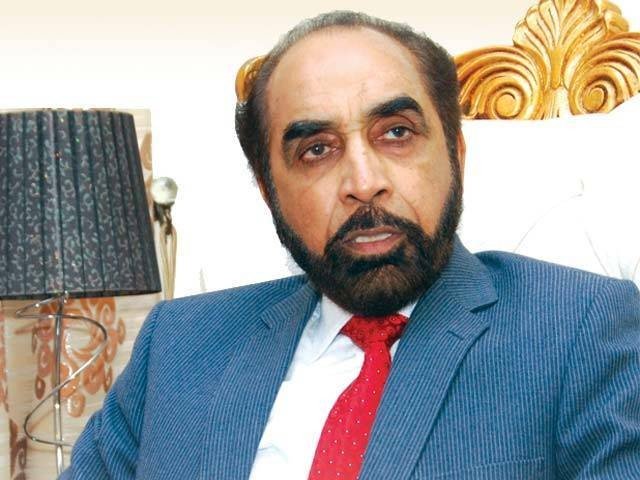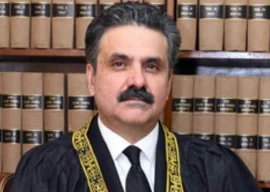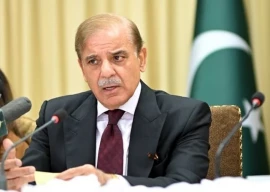
Using the power of quo warranto, the top court’s three-judge bench observed on Wednesday that Farooq is not eligible to hold the mentioned office. The reasons will be issued later.
Since the start of the proceedings on the Katas Raj pond drying up case, the SC bench, headed by Chief Justice Mian Saqib Nisar, had raised several questions over the competency of Farooq as ETPB chairman. He was even awarded Rs20,000 fine for not submitting a reply on time.
CJP calls meeting of chief justices to resolve CPEC related litigation
The same three-judge bench also resumed hearing in the plea filed by civil society members against a Sindh High Court (SHC) order wherein all anti-terrorism charges against accused persons in the Shahzeb Khan murder case were set aside.
Justice Nisar asked how members of the civil society could challenge the acquittal of Shahrukh Jatoi and other accused by the SHC if the parents and state had already reached a conclusion.
The bench, headed by the CJP, asked counsel Faisal Siddiqui to convince it on the point of locus standi.
“If the parents and the state have reached a comprise in the matter, how can the civil society and non-governmental organisation approach SC?” he asked.
The counsel argued that there was collusion between the state and the accused party in the murder case as, according to him, four prosecutors on the case had been replaced in the matter.
Explaining the locus standi, he said eight of the 10 petitioners were residents of the area where Shahzeb was killed.
Justice Nisar asked whether the court could exercise jurisdiction under Article 184(3) of the Constitution while Justice Asif Saeed Khosa observed that the clause could be exploited if the court allowed this appeal under Article 185 of the Constitution. “Likewise it may open the door to SC being approached [in similar cases] in the future,” said Justice Khosa.
SC determined to resolve issues of minorities, says CJP
The bench will resume hearing of the case today [Thursday].
In December, the SHC had set aside the conviction of Jatoi and three others who were recently released after a compromise was reportedly reached with the deceased’s family.
Ten civil society members, including Jibran Nasir, Jamshed Raza Mehmood, Afiya Sherbano Zia, Naeem Sadiq and Faheem Zaman Khan, filed an appeal at the SC’s Karachi Registry challenging the decision.
The petitioners submitted they had the legal right to appeal and challenge the judgment, arguing that “this is an issue of public importance and involves acts of terrorism”, especially considering the fact that the state had consented to the judgment and the legal heirs of the deceased person had compromised with the respondents.
They argued that the “unfortunate and gruesome murder of Shahzeb resulted in creating fear, panic and insecurity amongst the people residing in the Defence and Clifton vicinities and the public in general in Karachi and Pakistan”.



1730959638-0/trump-(19)1730959638-0-165x106.webp)













COMMENTS (2)
Comments are moderated and generally will be posted if they are on-topic and not abusive.
For more information, please see our Comments FAQ